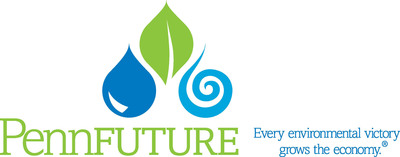University of Pittsburgh Study: Air Pollution Linked To Autism In Southwestern Pennsylvania
PITTSBURGH, Oct. 22, 2014 /PRNewswire-USNewswire/ -- Preliminary results from a groundbreaking study from the University of Pittsburgh show a significant correlation between exposure to toxic air pollutants during pregnancy and a child's early years of life and the development of autism spectrum disorders. Researchers from the University of Pittsburgh presented an abstract of the study today at the annual conference of the American Association for Aerosol Research.
A coalition of nonprofits in the greater Pittsburgh region, including Clean Air Council, Clean Water Action, PennFuture, Sustainable Pittsburgh, and Women for a Healthy Environment, issued the following statements in response to the new research:
"Autism currently affects one in every 68 children in the U.S., and the prevalence of autism spectrum disorders among children in Pennsylvania is increasing," explained Michelle Naccarati-Chapkis, executive director of Women for a Healthy Environment. "It is increasingly clear that autism constitutes a significant public health problem, both nationally and here in Pennsylvania."
"Southwestern Pennsylvania has struggled with air pollution for decades, and progress cleaning up our air has been far too slow," said Court Gould, executive director of Sustainable Pittsburgh. "This new abstract adds to a growing body of evidence linking exposure to toxic air pollutants with increased risks of childhood autism spectrum disorders. We owe it to our children to clean up our air once and for all."
The University of Pittsburgh's research is the most recent study examining the connection between air toxins and autism. Research published last year in JAMA Psychiatry and Environmental Health Perspectives also noted a relationship between air toxins and autism.
"The Allegheny County Health Department (ACHD) is responsible for protecting the health of residents in our region," said Valessa Souter-Kline, western Pennsylvania outreach coordinator for PennFuture. "This new research is further proof that the ACHD needs to ensure that large industrial sources, which are notorious emitters of air toxins, are operating in compliance with the law."
"Parents are frustrated that this kind of research is poorly funded by the government while we continue to give companies permits to release these toxic chemicals," said Myron Arnowitt, Pennsylvania state director for Clean Water Action. "I urge our local officials to make securing funding to advance research of this nature an immediate priority over continuing to give companies permits that result in the release of these toxic chemicals."
"As the parent of an autistic child, I applaud the University of Pittsburgh for examining the connection between toxic air pollution and autism," said Amy Sage of North Huntingdon, Pa. "I urge anyone who is concerned about the growing rate of autism in our state to take a serious look at this research and demand cleaner air for our children."
"Over the past ten years, we have been seeing an increasing rate of autism not only in the Pittsburgh area but all over the world, and our concern has been that this increase cannot be strictly genetic in origin," said Dr. Scott Faber, Neurodevelopmental Pediatrician at The Children's Institute of Pittsburgh. "These findings add to a growing body of evidence giving us great concern that pollution occurring in our region is increasing the risk of children developing neurodevelopmental disorders."
For this study, researchers at the University of Pittsburgh conducted a population-based case control study in six counties in southwestern Pennsylvania, estimating the association between autism spectrum disorders and 30 known neurotoxicants. The researchers found that exposure to chromium, cyanide, styrene and other toxic air pollutants during pregnancy and a child's early years of life increased the likelihood that a child would be diagnosed with an autism spectrum disorder. Styrene is used in the production of plastics and paints, but is also one of the products of combustion when burning gasoline in vehicles. Chromium is a heavy metal and air pollution containing it is typically the result of industrial processes and in the hardening of steel. Cyanide is used in a number of industries or can be found in vehicle exhaust.
To view the full abstract, visit http://aaarabstracts.com/2014/viewabstract.php?pid=599
PennFuture is a statewide public interest membership organization founded in 1998 with offices in Harrisburg, Pittsburgh, Philadelphia and Wilkes-Barre. The organization's activities include litigating cases before regulatory bodies and in local, state, and federal courts; advocating and advancing legislative action on a state and federal level; public education; and assisting citizens in public advocacy.
Contact: Elaine Labalmelabalme@pennfuture.org
412.996.4112
Logo - http://photos.prnewswire.com/prnh/20130211/DC57616LOGO
To view the original version on PR Newswire, visit:http://www.prnewswire.com/news-releases/pitt-study-air-pollution-linked-to-autism-in-southwestern-pennsylvania-361780991.html
SOURCE PennFuture

